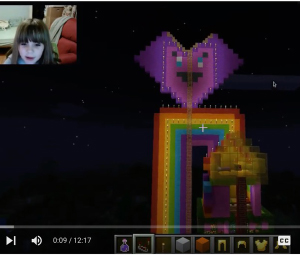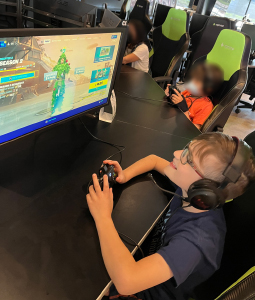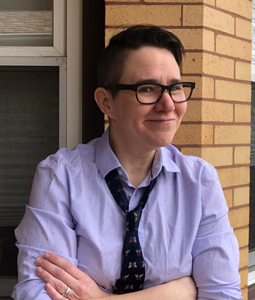As a kid I watched up to 6 hours of TV some days, and this was before cable. I'm not going to lie, watching that many reruns and game shows took dedication! When I was 26 I decided I'd go to graduate school to study television and film. What better life could there be than combining my two favorite things: school and media. That same year I met Sharon Marie Ross, fellow Texas Longhorn and gender and TV studies graduate student, over jerk chicken and a movie. Eight years later, after endless dinners, movies, conferences, and drinks, she would serve as my “best man" at my wedding, and over the next decade we would both become parents. And now here we find ourselves, professors in our fifties, and moms struggling just like everyone else to make sense of how we're supposed to raise our kids in a world full of Instagram, Disney+, TikTok, YouTube, Fortnite, Gacha Life, and cellphones.
In our forties, as we transitioned from independent adults to professionals—me at DePaul and Sharon at Columbia College down the street—and parents, we started spending more time thinking about the role media was playing in our own kids' lives and how often the things we taught to our students seemed to come into question with how we felt as parents. How much TV is too much? I know what I said about effects theory in grad school, but my kid really does punch people more when he watches Power Rangers! Is my kid getting dumber watching seemingly endless unboxing videos with that lady with the sexy nails on YouTube? After what seemed like an eternity of kicking around the idea of doing a joint project on kids and m
 Kessler's daughter interacting with a video game. Photo credit: Kelly Kessler
Kessler's daughter interacting with a video game. Photo credit: Kelly Kessleredia, we—and Professor of Education and mom of 3 Katie Paciga of Columbia College—finally found the mental bandwidth and time to dig into the project.
What we found most interesting about the prospect of writing a book on kids and media was the fact that we—established academics who were supposed to be experts on media texts and reception—found ourselves struggling day in and day out with the same questions about how to parent in this sea of 21st century media texts and platforms as everyone else. The fact that we had more information didn't necessarily mean we were miles ahead of everyone else. So, we gathered together over two dozen scholars of popular culture who also happen to be parents, and we're having them share their unique perspectives on negotiating the treacherous waters of parenting their own kids in a hyper-mediated society.
 Kessler's son playing a video game. Photo credit: Kelly Kessler
Kessler's son playing a video game. Photo credit: Kelly KesslerWe're working to develop a kind of handbook that shares some of our struggles as media-scholar parents and some lessons we've learned along the way. With topics ranging from parental media use around infants and connecting with your kid through their online story worlds to talking about safety, negotiating gender identity and sexuality through cross-generational viewing, neurodivergence and gaming, and online media production, we touch on everything from JoJo Siwa and She-Ra to The Sandlot and Minecraft. Every single day we find ourselves trying not to break our kids as we make yet another decision about what choices to greenlight. We're hoping we can help other parents through our united struggles. And maybe, just maybe, I'll figure out if 9 years-old was too young to start my kids on
King of the Hill.
 Kelly Kessler is a professor of media and popular culture in the College of Communication. Her research focus includes issues of gender, sexuality, and genre in American television and film, most commonly surrounding the musical.
Kelly Kessler is a professor of media and popular culture in the College of Communication. Her research focus includes issues of gender, sexuality, and genre in American television and film, most commonly surrounding the musical.